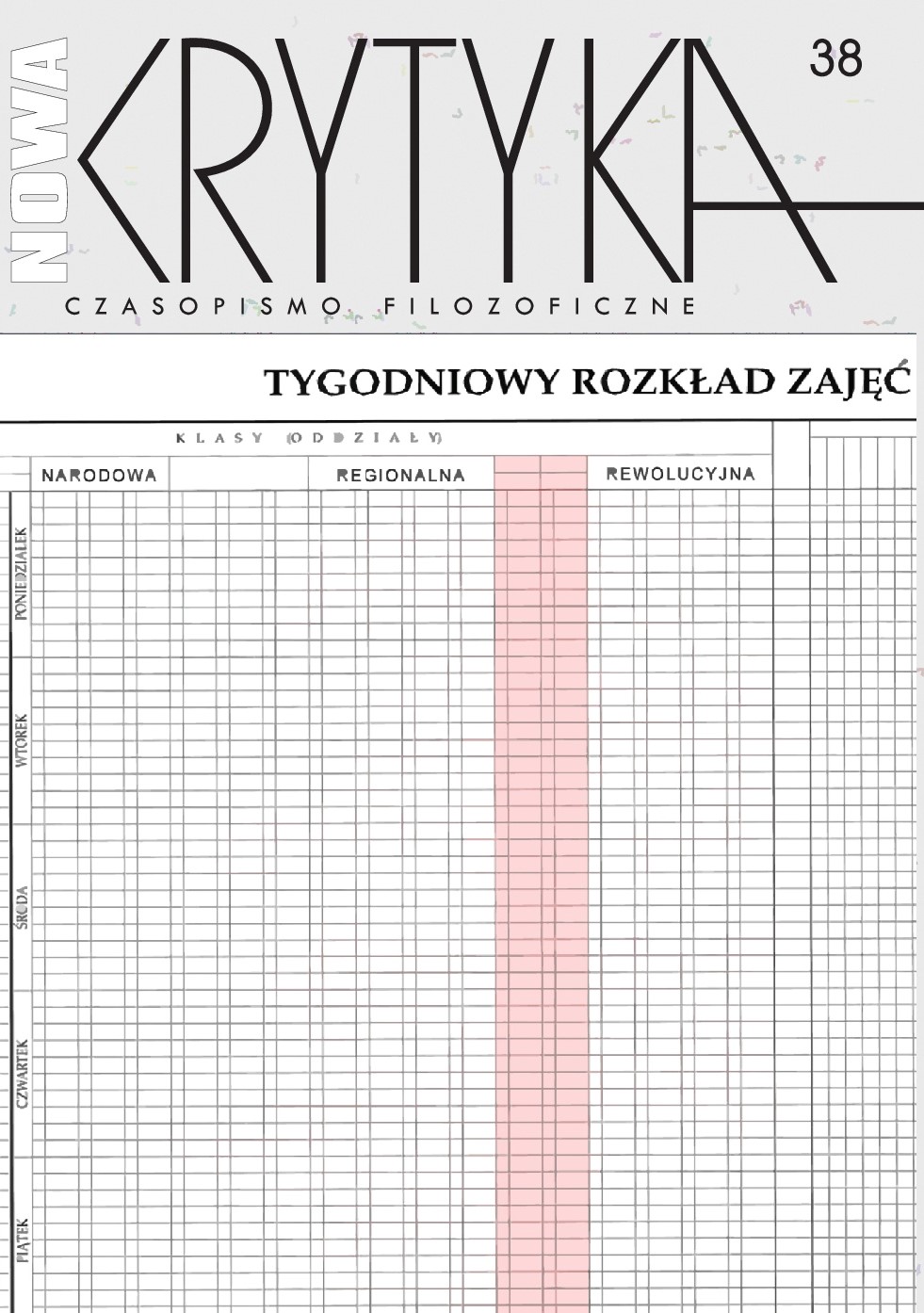Bezrobocie, głód, więzienie (część pierwsza)
Unemployment, Hunger, Imprisonment (Part One) ..
Author(s): Rafał JakubowiczSubject(s): Philosophy, Social Philosophy
Published by: Wydawnictwo Naukowe Uniwersytetu Szczecińskiego
Keywords: unemployment; Invest Park Special Economic Zone of Wałbrzych; „Mothers on Strike” in Wałbrzych; „Social Works”; basic income; unpaid reproductive work; suicides within the group of the unemployed; cri
Summary/Abstract: This article takes up the problem of unemployment. Begining from the Great Depression of 1930s, Bezrobotnych Marienthalu (eng. Unemployed of Marienthal) Pamiętników Bezrobotnych (eng. Diaries of the Unemployed) Rafał Jakubowicz moves to the situation in Poland after 1989, when in the aftermath of both privatization and restructuring – including total winding-up of the extractive industry sector – people in masses lost their jobs and – left alone – were forced to move to the grey market, becoming “hunters, pickers, powerlessness practicioners” (after Tomasz Rakowski) sentenced for a hell of bootleg mining or/and junk contracts, provided by outsourcing companies in Special Economic Zones, where faced with unimaginable exploitation they were positioned as the “working poor”. The author looks at disciplinary mechanisms which unemployed are subjected to by officials of Employment Offices and Social Welfare Centers, which impose on them undertaking humiliating “voluntary works” and impelling to submissivness and availability. Neliberal state consequently depicts unemployment as an individual problem, coming from lack of initiative and personal characteristic profiles, rather than as system one, resulting from the qurter-century long governmental irresponsibility and gross neglect in the field of social policy. In order to obtain poor social benefits, each step they take, unemployed face common and widespread class rasism (after Monika Bobako) and are subjected to the bureaucratic pressure of satisfying absurdal criterias. People of low economic status are being criminalised and victimised by the prevailing system. Rafał Jakubowicz mentions in this article also his own project, titled Bezrobotny (eng. Unemployed) that was developed for the Kronika Center for Contemporary Arts in Bytom, Poland in 2011, and which referred Władysław Strzemiński litography work from the 30s titled Bezrobotni II (eng. Unemployed II). He there selfscans (after Stanisław Czekalski and Tomasz Załuski) idea of functionalism (which in its own is founded on taylorism), that stood behind works of unist who had rejected the concept of proletarian art.
Journal: Nowa Krytyka: czasopismo filozoficzne.
- Issue Year: 2017
- Issue No: 38
- Page Range: 167-180
- Page Count: 14
- Language: Polish

